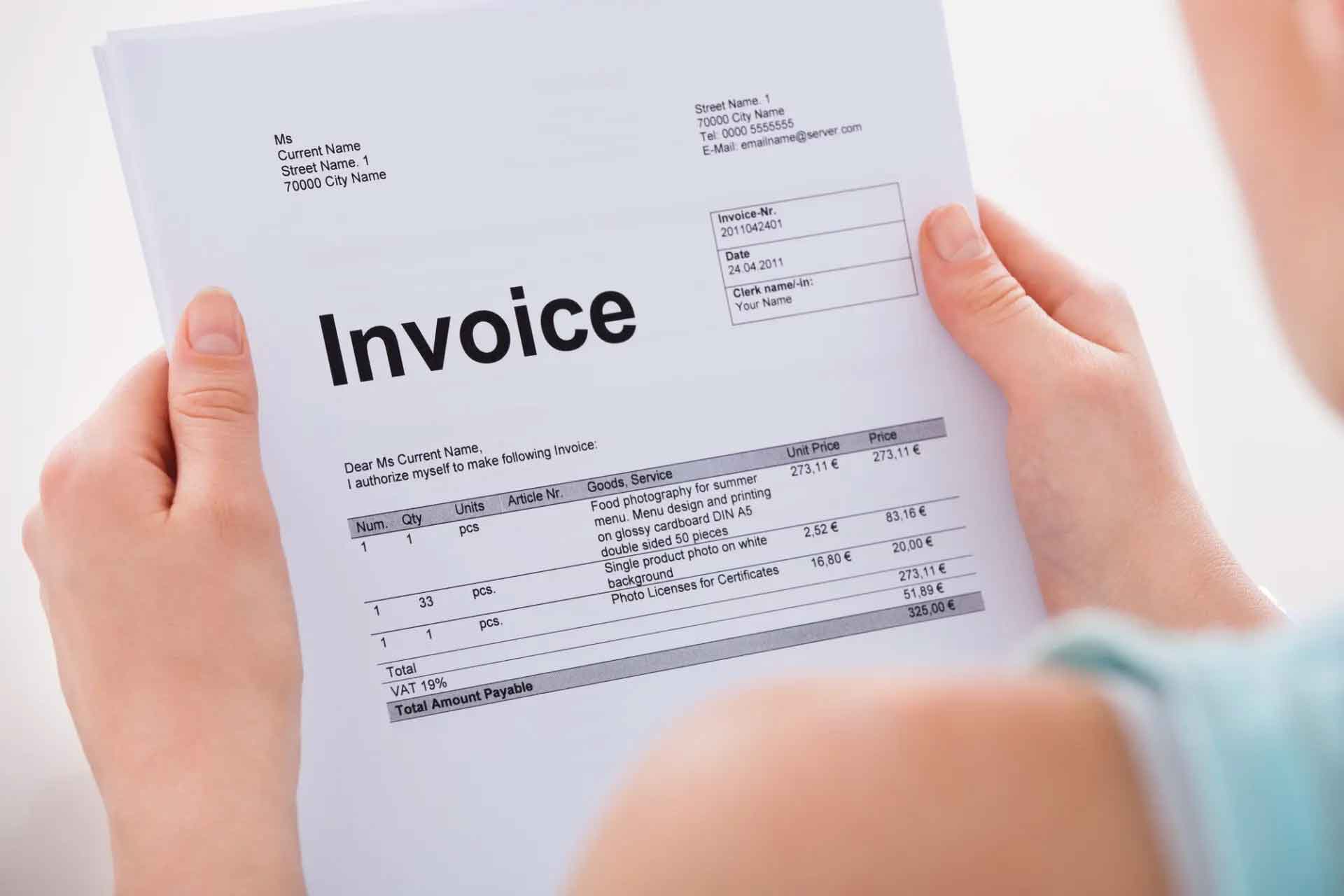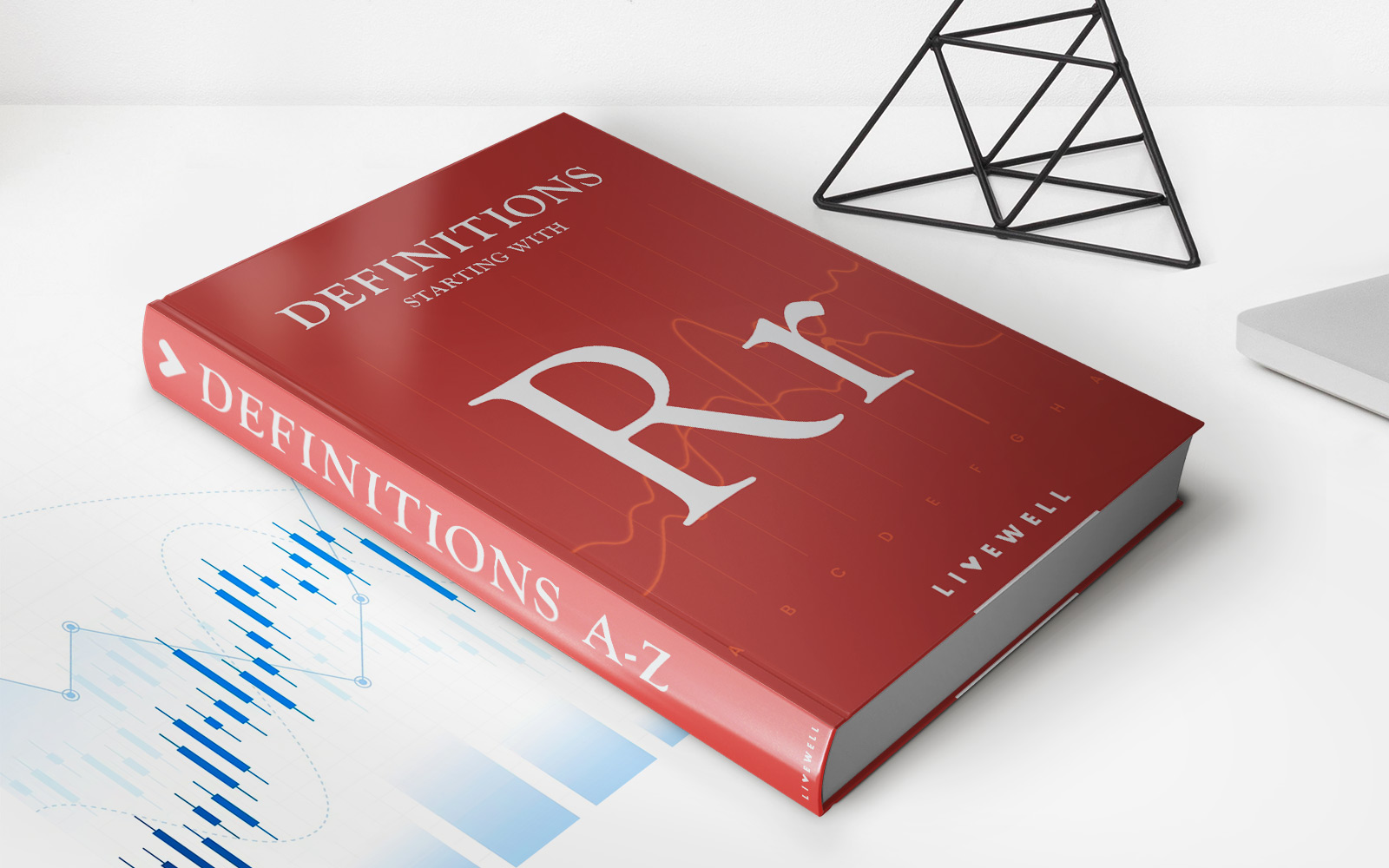

Finance
Which Is My Credit Score Transunion Or Equifax
Published: October 23, 2023
Discover the answer to "Which is my credit score, TransUnion or Equifax?" and gain valuable insights into your finances with our finance expert advice.
(Many of the links in this article redirect to a specific reviewed product. Your purchase of these products through affiliate links helps to generate commission for LiveWell, at no extra cost. Learn more)
Table of Contents
- Introduction
- Credit Scores
- TransUnion
- Equifax
- Differences between TransUnion and Equifax Credit Scores
- Factors That Determine Your Credit Score
- How to Check Your TransUnion Credit Score
- How to Check Your Equifax Credit Score
- Which Credit Score Matters More: TransUnion or Equifax?
- How to Improve your TransUnion or Equifax Credit Score
- Conclusion
Introduction
When it comes to understanding your creditworthiness and financial health, your credit score plays a crucial role. Lenders, landlords, and even employers often rely on your credit score to evaluate your creditworthiness and make important decisions. When it comes to credit scores, TransUnion and Equifax are two of the major credit reporting agencies that provide credit scores to consumers.
In this article, we will delve into the topic of TransUnion and Equifax credit scores, highlighting their differences, and analyze which one matters more. We will also provide insights on how to check your credit scores from TransUnion and Equifax, as well as how to improve them.
Understanding the nuances of TransUnion and Equifax credit scores is essential to take control of your financial well-being and make informed decisions. So, let’s dive in and explore the world of credit scores and the role played by TransUnion and Equifax.
Credit Scores
Credit scores are numerical representations of an individual’s creditworthiness, indicating the likelihood of them repaying borrowed money. They are derived from an analysis of credit data collected by credit reporting agencies. These scores typically range from 300 to 850, with higher scores indicating better creditworthiness and lower scores suggesting higher credit risk.
Credit scores are essential because they influence various aspects of your financial life. They are used by lenders to determine whether to approve your loan applications and what interest rates to offer you. Landlords use them to assess your rental applications, and some employers even consider credit scores as part of their hiring process.
TransUnion and Equifax are two major credit reporting agencies that calculate and provide credit scores to consumers. They gather and maintain credit and other relevant data on individuals, including their payment history, credit utilization, length of credit history, and public records like bankruptcies and tax liens. By analyzing this data, both TransUnion and Equifax generate credit scores that allow lenders and other entities to assess creditworthiness.
While the ultimate goal of both TransUnion and Equifax is to provide an accurate representation of an individual’s creditworthiness, it is important to understand the differences between their scoring models and how they calculate credit scores.
TransUnion
TransUnion is one of the three major credit reporting agencies in the United States, along with Equifax and Experian. It has a vast database of consumer credit information, enabling lenders and other entities to assess creditworthiness accurately. TransUnion collects information from various sources, including credit card companies, lenders, and public records.
TransUnion calculates credit scores using the VantageScore model, which is a credit scoring system developed collaboratively by the three major credit reporting agencies. The VantageScore model considers several factors to calculate credit scores, including payment history, credit utilization, credit age, credit mix, and recent credit inquiries.
TransUnion provides credit scores ranging from 300 to 850, with higher scores indicating better creditworthiness. It also provides a CreditVision score, which offers a more comprehensive analysis of an individual’s credit profile by considering additional factors such as rent payments, public records, and alternative data sources.
In addition to credit scores, TransUnion offers various credit monitoring services that can help individuals stay on top of their credit health. These services provide real-time alerts for changes in credit reports, identity theft protection, and access to credit education resources.
To check your TransUnion credit score, you can request a free copy of your credit report through AnnualCreditReport.com, which provides access to your credit report from each of the major credit reporting agencies once every 12 months. Additionally, TransUnion offers its own credit monitoring services that allow you to access your credit score and report on an ongoing basis for a fee.
Now that we have covered TransUnion, let’s explore Equifax and understand the differences between these two credit reporting agencies.
Equifax
Equifax is another prominent credit reporting agency that provides credit scores and reports to consumers. It collects and maintains vast amounts of credit information, including data from lenders, credit card companies, and public records. Equifax uses this data to generate credit scores and reports that help lenders assess an individual’s creditworthiness.
Equifax employs the Equifax Credit Score model to calculate credit scores. This model considers various factors, such as payment history, credit utilization, length of credit history, types of credit accounts, and recent credit inquiries. Equifax credit scores range from 280 to 850, with higher scores indicating better creditworthiness.
In addition to credit scores, Equifax provides detailed credit reports that offer a comprehensive overview of an individual’s credit history. These reports include information about credit accounts, payment history, public records, and any reported collections or defaults.
Equifax also offers credit monitoring and identity theft protection services to help individuals safeguard their credit profiles. These services include real-time alerts for any changes to credit reports, credit score tracking, and assistance in case of identity theft or fraud.
To check your Equifax credit score, you can request a free copy of your credit report through AnnualCreditReport.com, as mentioned earlier. Equifax also provides its own credit monitoring services, which allow ongoing access to your credit score and report for a fee.
Now that we have covered TransUnion and Equifax individually, let’s explore the differences between these two credit reporting agencies and their respective credit scores.
Differences between TransUnion and Equifax Credit Scores
While TransUnion and Equifax both provide credit scores and reports, there are some key differences between them:
Scoring Models:
TransUnion uses the VantageScore model to calculate credit scores, while Equifax uses the Equifax Credit Score model. Although both models consider similar factors like payment history and credit utilization, their algorithms may weigh these factors differently. As a result, your credit scores from TransUnion and Equifax may not be identical.
Data Sources:
TransUnion and Equifax collect credit information from various sources, but there may be differences in the data reported to each credit reporting agency. Lenders and creditors can choose to report credit information to one or both of the agencies, which can lead to variations in the data that ultimately impacts your credit scores.
Credit Monitoring Services:
TransUnion and Equifax offer their own credit monitoring services, each with its own unique features and pricing. These services may differ in terms of real-time alerts, identity theft protection, and credit education resources. It’s important to review the services offered by both agencies to determine which one aligns with your needs.
Industry-Specific Data:
Both TransUnion and Equifax collect industry-specific data, such as auto loan and mortgage information. However, the way this data is reported and used in their scoring models may vary. This can lead to differences in credit scores, particularly if you have specific types of loans or credit accounts.
Accuracy and Reporting:
While both TransUnion and Equifax strive to maintain accurate credit reports, errors or discrepancies can occur. It’s important to review and compare your credit reports from both agencies regularly to ensure accuracy and address any inaccuracies promptly.
Ultimately, the credit scores from TransUnion and Equifax provide a snapshot of your creditworthiness, but it’s important to remember that lenders and creditors may use different credit scoring models altogether. Therefore, it’s essential to focus on maintaining good credit habits across all aspects of your financial life to improve your overall creditworthiness.
Factors That Determine Your Credit Score
Your credit score is calculated based on various factors, and understanding these factors can help you improve and maintain a good credit score. While the exact weightage may vary between credit scoring models, here are the general factors that determine your credit score:
Payment History:
Your payment history has a significant impact on your credit score. Lenders want to see a track record of on-time payments, so consistently paying your bills by the due date will positively affect your score. Late payments, defaults, and accounts in collections can have a negative impact on your credit score.
Credit Utilization:
Credit utilization refers to the amount of credit you are using compared to your total credit limit. Keeping your credit utilization low, ideally below 30%, demonstrates responsible credit management and can positively impact your credit score. High credit utilization can indicate a higher credit risk and potentially lower your score.
Length of Credit History:
The length of your credit history is the amount of time you’ve had credit accounts. A longer credit history allows lenders to assess your creditworthiness more accurately. It’s generally beneficial to keep older credit accounts open, as they contribute to the length of your credit history and show a long-standing credit relationship.
Credit Mix:
The types of credit accounts you have, such as credit cards, loans, and mortgages, contribute to your credit mix. Having a diverse credit mix can demonstrate responsible credit management and improve your credit score. However, it’s important to only take on credit that you can manage responsibly.
New Credit Inquiries:
When you apply for new credit, such as a loan or credit card, it results in a hard inquiry on your credit report. Multiple recent inquiries can negatively impact your credit score, as it may suggest a higher credit risk or potential financial strain. Limit unnecessary credit applications and only apply for credit when necessary.
It’s important to note that these factors are not exhaustive, and credit scoring models may consider additional factors or place different weightage on each factor. Monitoring and understanding these factors can help you make informed decisions and take steps to improve your credit score.
How to Check Your TransUnion Credit Score
Checking your TransUnion credit score is an important step in monitoring your credit health and understanding your financial standing. Here are a few ways you can check your TransUnion credit score:
1. AnnualCreditReport.com:
AnnualCreditReport.com is a website authorized by the U.S. government that allows consumers to request a free copy of their credit report from each of the major credit reporting agencies, including TransUnion. By accessing AnnualCreditReport.com, you can obtain a copy of your credit report, which includes your TransUnion credit score.
2. TransUnion Website:
TransUnion also offers its own credit monitoring services that provide ongoing access to your credit score and report. By visiting the TransUnion website, you can sign up for their credit monitoring services, which typically come with a fee. This allows you to access your TransUnion credit score and receive alerts for any changes or updates to your credit report.
3. Credit Score Apps:
There are several credit score apps available for download on your smartphone that provide access to your credit scores from various credit reporting agencies, including TransUnion. Simply search for these apps in your device’s app store, download and install them, and follow the instructions to set up an account. Once you’ve completed the setup process, you can view your TransUnion credit score right from the app.
4. Credit Monitoring Services:
Many credit monitoring services, both free and paid, offer access to your credit scores from multiple credit reporting agencies. These services typically provide regular updates and alerts for any changes to your credit reports. By subscribing to a credit monitoring service, you can track your TransUnion credit score along with scores from other credit reporting agencies in one convenient place.
Remember to review your credit report and credit score regularly to ensure accuracy and identify any potential issues that may require your attention. Checking your TransUnion credit score allows you to stay informed about your credit health and take appropriate steps to improve or maintain your creditworthiness.
How to Check Your Equifax Credit Score
Keeping tabs on your Equifax credit score is essential for monitoring your creditworthiness and ensuring the accuracy of your credit profile. Here are a few methods that allow you to check your Equifax credit score:
1. AnnualCreditReport.com:
AnnualCreditReport.com is a government-authorized website that offers consumers free access to their credit reports from each of the three major credit reporting agencies, including Equifax. By visiting the website, you can request a copy of your credit report, which includes your Equifax credit score.
2. Equifax Website:
Equifax provides its own credit monitoring services that enable you to regularly access your credit score and report. By visiting the Equifax website, you can sign up for these services, which usually involve a subscription fee. Once registered, you can view your Equifax credit score, receive alerts for any changes on your credit report, and access additional credit monitoring features.
3. Credit Score Apps:
Various credit score apps are available for download on your smartphone, providing access to credit scores from different credit reporting agencies, including Equifax. Look for these apps in your device’s app store, install them, and follow the setup instructions to create an account. Once your account is set up, you can easily view your Equifax credit score using the app.
4. Credit Monitoring Services:
Credit monitoring services offer comprehensive credit monitoring, which includes access to your credit scores from multiple credit reporting agencies. These services, available on either a free or subscription basis, provide regular credit updates and alerts for any changes to your credit reports. Subscribing to a credit monitoring service allows you to conveniently keep track of your Equifax credit score while also monitoring scores from other credit reporting agencies.
Remember to review your credit report and credit score periodically to ensure accuracy and identify any potential discrepancies. Regularly checking your Equifax credit score allows you to stay informed about your credit health and take appropriate actions to maintain or improve your creditworthiness.
Which Credit Score Matters More: TransUnion or Equifax?
When it comes to which credit score matters more, TransUnion or Equifax, the answer is both, and yet neither. It’s important to understand that lenders and creditors may use different credit scoring models or rely on their own proprietary systems to assess creditworthiness. Therefore, it’s crucial to focus on maintaining good credit habits across all aspects of your financial life.
Both TransUnion and Equifax credit scores provide valuable insights into your creditworthiness, as they consider similar factors such as payment history, credit utilization, credit age, credit mix, and recent credit inquiries. However, the algorithms and weightage assigned to each factor may vary between the credit scoring models used by TransUnion and Equifax.
Instead of fixating on one specific credit score, it’s more prudent to aim for a strong credit profile overall. By practicing responsible credit management, such as making timely payments, keeping credit utilization low, and maintaining a good credit mix, you can positively impact both your TransUnion and Equifax credit scores.
Furthermore, it’s essential to monitor your credit reports from both TransUnion and Equifax for accuracy. Discrepancies or errors on either report can potentially affect your credit scores differently. By regularly reviewing your credit reports, you can identify any issues and take appropriate steps to rectify them.
Ultimately, the goal is to maintain consistent and responsible financial habits across all aspects of your credit history. This includes paying bills on time, minimizing credit card balances, keeping credit accounts open and active, and avoiding unnecessary credit inquiries.
Remember that each lender or creditor may have their own criteria for evaluating creditworthiness, and they may pull credit reports from different credit reporting agencies. While you can’t control which credit score a lender will consider, you can proactively work to maintain a healthy credit profile by focusing on the factors that impact credit scores in general.
So, rather than viewing TransUnion or Equifax credit scores as more important than the other, it’s crucial to prioritize overall credit health by practicing responsible financial habits and monitoring credit reports from all three major credit reporting agencies.
How to Improve your TransUnion or Equifax Credit Score
If you’re looking to improve your TransUnion or Equifax credit score, there are several strategies you can implement to enhance your creditworthiness. Here are some key steps you can take:
1. Pay Bills on Time:
Consistently making on-time payments is crucial to building a positive credit history. Set up payment reminders, automate payments, or create a budget to ensure that your bills are paid on or before the due dates, reducing the risk of late payments affecting your credit score.
2. Reduce Credit Utilization:
High credit card balances relative to your credit limits can negatively impact your credit score. Aim to keep your credit utilization below 30% on each credit card and overall. Paying down debt and keeping balances low will demonstrate responsible credit usage and improve your credit score.
3. Maintain a Healthy Credit Mix:
Having a mix of credit accounts, such as credit cards, loans, and mortgages, can positively impact your credit score. Make sure you have a diverse range of credit types and manage them responsibly. However, only open new accounts when necessary and avoid taking on excessive debt.
4. Limit Credit Applications:
When you apply for new credit, it results in a hard inquiry on your credit report, which can temporarily lower your score. Minimize unnecessary credit applications and only apply when you genuinely need credit. Multiple inquiries within a short period can be seen as a red flag by lenders.
5. Regularly Monitor Your Credit Reports:
Obtain and review your credit reports from both TransUnion and Equifax to ensure their accuracy. Dispute any errors or discrepancies you find, as they could potentially impact your credit score. Regularly monitoring your credit reports allows you to identify and address issues in a timely manner.
6. Limit Closing Credit Accounts:
While paying off debts is beneficial, closing credit accounts can actually lower your credit score. Closing accounts reduces your available credit and shortens your credit history, potentially impacting your credit utilization and credit age. Keep credit accounts open, especially older ones, as long as they are in good standing.
7. Seek Professional Guidance if Needed:
If you’re struggling to manage your debts or improve your credit, consider seeking assistance from a credit counseling agency. They can provide guidance on budgeting, debt repayment strategies, and managing your credit to help you improve your credit score.
Improving your TransUnion or Equifax credit score takes time and consistent effort. By implementing these strategies and practicing responsible credit behavior, you can gradually enhance your creditworthiness and achieve a stronger credit score.
Conclusion
Your credit score plays a significant role in your financial life, impacting your ability to secure loans, obtain favorable interest rates, and even qualify for rental applications or job opportunities. TransUnion and Equifax are two major credit reporting agencies that provide credit scores, each using their own scoring models, algorithms, and data sources.
While TransUnion and Equifax credit scores may have some differences, it’s important to focus on maintaining good credit habits across the board. Factors like payment history, credit utilization, credit age, credit mix, and recent credit inquiries are vital in determining your creditworthiness.
To check your TransUnion credit score, you can utilize AnnualCreditReport.com or explore the credit monitoring services offered by TransUnion. Similarly, you can access your Equifax credit score through AnnualCreditReport.com or take advantage of Equifax’s credit monitoring services.
It’s crucial to remember that neither TransUnion nor Equifax credit scores matter more than the other. Lenders and creditors may use different credit scoring models or have their own proprietary systems. Thus, it’s essential to focus on maintaining a healthy credit profile overall by practicing responsible financial habits and regularly monitoring your credit reports for accuracy.
By paying your bills on time, keeping credit utilization low, maintaining a diverse credit mix, limiting credit applications, and monitoring your credit reports, you can improve your creditworthiness and work towards achieving a better credit score from both TransUnion and Equifax.
Remember, improving your credit score takes time, consistency, and responsible financial behavior. By taking proactive steps and staying informed about your credit health, you can position yourself for better financial opportunities and a secure financial future.














